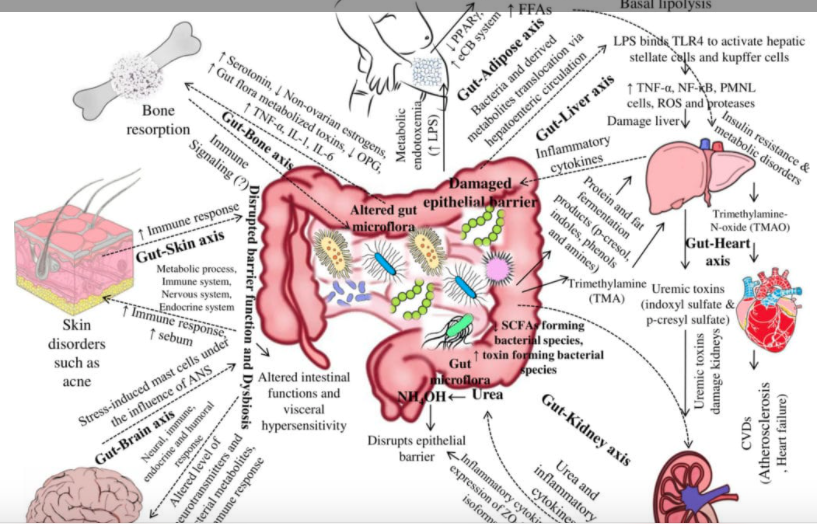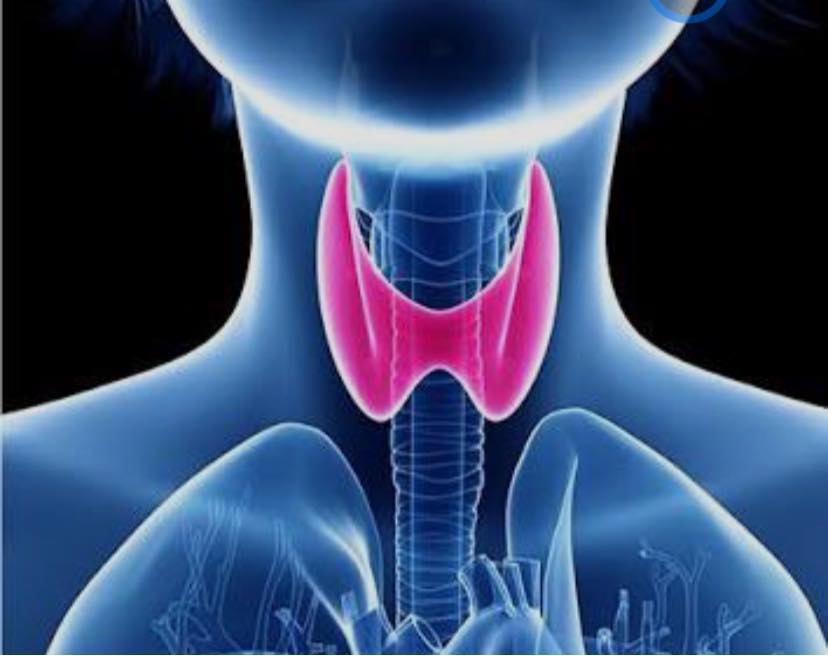
GUT – BRAIN AXIS
The Gut-Brain Axis (GBA)
One of the most important connections the gut has is to the brain. This connection is so influential that the gut has even been dubbed the “second brain.” Microbes in the gut have the ability to communicate via neural, immune, endocrine, and other links.
So, what does the gut “tell” the brain? It has the ability to influence a range of brain processes such as behavior, appetite, and serotonin metabolism (a mood hormone).
When there is gut dysbiosis, however, this communication becomes faulty. Changes in the microbiome can lead to an imbalanced expression of certain neurotransmitters, leading to a range of mood and neurological disorders. Autism spectrum disorders, anxiety, Parkinson’s disease, Alzheimer’s disease, and multiple sclerosis have all been tied to changes in the gut microbiome.
Just as the gut can influence the brain, the brain can also influence the gut. For instance, the microbiome takes a hit when you are stressed. Cells that help the gut bacteria thrive or make the environment of the gut favorable under normal conditions may fail while under stress. The gut bacteria diminish and the microbiome is weakened.
The Gut-Kidney Axis
The kidneys are crucial for proper waste and toxin management, as well as homeostasis, blood pressure, and water balance. The gut and kidney are linked in several ways, from salt balance to protein metabolism.
One way the gut impacts the kidneys is through stone prevention. The most common cause of kidney stones is an excess of calcium oxalate that builds up in the kidney tissue. The gut is home to specialized bacteria that break down oxalates from the diet to use as their own energy. These bacteria also induce oxalate secreting from the intestinal lining, which keeps more oxalate out of the body’s bloodstream (and therefore away from the kidneys). Those with low levels of this type of gut bacteria, or gene alterations that prevent this secretion, may be more likely to develop kidney stones.
The Gut-Liver Axis
Could the causes of liver disease be tied to the gut? Recent research suggests it can.
Issues like non-alcoholic fatty liver disease (NAFLD), nonalcoholic steatohepatitis, and other inflammatory conditions are often tied to poor gut health. The liver gets its link to the gut through the portal vein, which drains blood from the mesenteric veins that stem from the GI tract. This connection allows gut cells to reach the liver via the portal vein where they are then metabolized by the liver.
When the gut has a weak barrier and toxic contents, the liver is the first organ to come into contact with these toxins. Additionally, researchers report that weak gut barriers and changes in the gut microbiome are major contributing factors to fatty-liver disease.
Current research is now asking: If gut health can cause issues like fatty-liver disease, can diet change and supporting a healthy gut microbiome reverse these issues?
The Gut–Bone Axis
The gut-bone connection is a new area of research and one that is still growing. But, studies show that certain gut microbes may be beneficial to improving bone mineral density and strength. These microbes produce metabolites (specifically short-chain fatty acids) that enter the gut and diffuse into the body’s general circulation.
On the other hand, imbalanced microbiota composition is linked to bone loss and deterioration. Studies suggest that we can improve bone health by addressing the gut and supporting the healthy gut bacteria that restores bone cells.
The Gut–Skin Axis
If you have an issue in your gut, it’s likely it will show up on your face! Gut dysbiosis is one of the leading causes of skin conditions as the gut and skin are intricately linked. Acne, rosacea, dermatitis, psoriasis, and other skin issues may have their root in an imbalanced microbiome.
Because much of the immune system is regulated by the gut, issues with gut health prevent the body from fully protecting the skin from infection. Alternatively, a hypersensitive immune system (which can develop from issues like leaky gut) can lead to inflammatory conditions like dermatitis and psoriasis.
Acne is a common skin condition with various causes but can be worsened or dragged on by poor gut health. Inflammation, inadequate waste removal, a buildup of toxins, and unregulated hormones are all significant causes of acne that start in the gut.
The Gut–Adipose Axis
It’s relatively clear to see how poor digestion could lead to excess weight, but the gut has an even deeper link to your adipose tissue – and it may even help you prevent chronic disease.
While white adipose tissue (fat), called WAT is the excess weight you carry around, brown adipose tissue or BAT acts as a precious energy reserve. Gut microbes can assist in the transformation of WAT to BAT with the presence of prebiotic resveratrol. Researchers believe this connection could be the key to fight obesity and metabolic disorders.
The Gut–Heart Axis
We know that a healthy diet can support a healthy heart. Now we realize just how important a healthy gut microbiome is when supporting the cardiovascular system – and how an imbalanced system may actually put you at higher risk for disease.
Studies show that certain intestinal bacteria may play a role in atherosclerosis and heart failure. As with other gut-organ systems, this connection is a two-way street. Scientists are finding substantial changes to gut composition in patients with severe cardiac disease and heart failure.
Managing the gut is becoming a new priority when treating cardiovascular disease and preventing chronic heart conditions.
Whole Body Health Through the Gut
As you’ve seen, the gut is so much more than a system to process food and eliminate waste. From head to toe, the gut tissues and microbiome work in harmony to keep the body strong and healthy. The gut is so crucial to your overall health that it is possible to make major health changes just by addressing your gut health.





